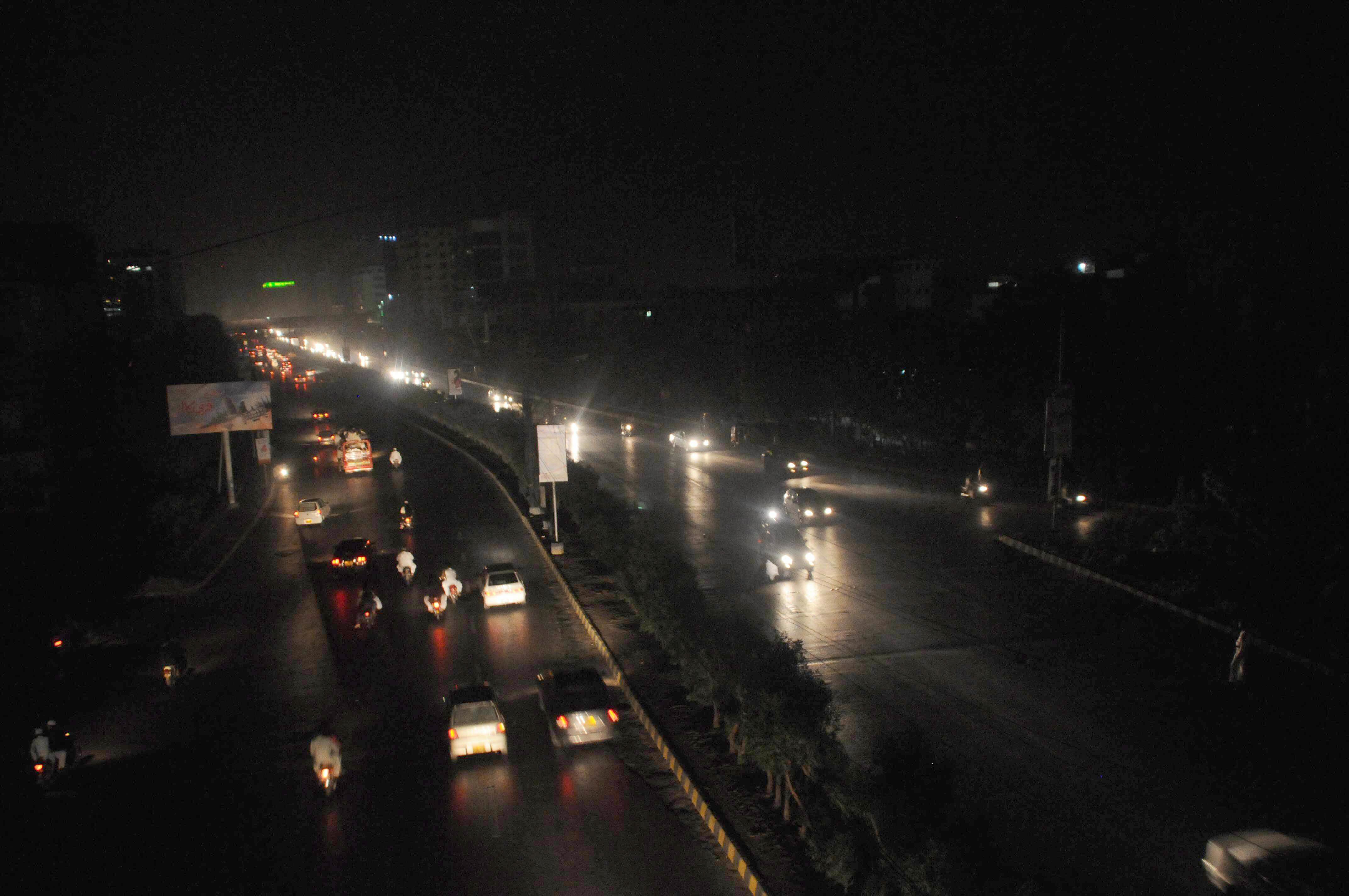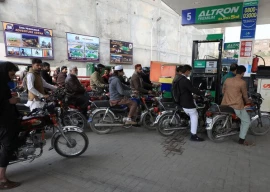
After a six-hour long blackout across much of the country except Karachi, electricity has partially been restored in many areas following a massive breakdown the national power grid suffered because of a technical fault at Tarbela power station on Friday morning.
Though till filing of this report, there was no official word as to which department was to blame for the electricity failure, officials of the ministry of water and power (MoWP) maintained that a technical fault at Tarbela power station led to the blackout.
However, national power control system is likely to issue a statement today (Saturday) to identify the reasons behind the power suspension.
A MoWP spokesperson said that faults reportedly occurred at the Tarbela powerhouse, which affected 500KV transmission lines.
He said the 220KV transmission lines were not affected and we could not call it a blackout.

The breakdown resulted in power outages in districts of Peshawar, Mardan, Sawabi, Azad Jammu Kashmir, Islamabad, Rawalpindi, Jehlum, Attock, Chakwal, Faisalabad, Gujranwala, Lahore and Multan.
The spokesman stated that the power failures were in between Tarbela and Guddu, whereas southern Punjab and Sindh were not affected at all.
“We have to restore 10,000MW. We are restoring electricity from north to south and are hopeful that 10,000MW electricity will be restored soon,” he added.
However, top officers claimed that the system is integrated and except Karachi, the whole country suffered a power breakdown including Khyber-Pakhtunkhwa, Punjab and Sindh primarily because no technical staff were deputed at the key positions. Karachi Electric Supply has its own power generation system plus it gets additional electricity from Hubco, they noted.
The sources went on to say that this winter uninterrupted power supply is under immense pressure as Punjab-based industries are getting considerable share in power supplies.
They said: “We also have to ensure regular power supplies to major cities due to political turmoil. The management of NPCS failed to manage the load on national grid. Ideally under such circumstances the management used to turn off some grids to manage the load, which in general term called ‘forced loadshedding’ but unfortunately they didn’t manage it properly on Friday.”
The sources also noted: “This has a cascading effect on other power houses like Mangla and Ghazi Barotha and eventually they tripped one after the other which led to overall system collapse. The national grids frequency dropped from 50Mh to 47Mh, and we see a blackout.”
Published in The Express Tribune, December 13th, 2014.
COMMENTS (1)
Comments are moderated and generally will be posted if they are on-topic and not abusive.
For more information, please see our Comments FAQ


1725443747-0/Untitled-design-(5)1725443747-0-165x106.webp)














And so what were the retards SMQ and Dr. Babar Awan pointing to initially ?